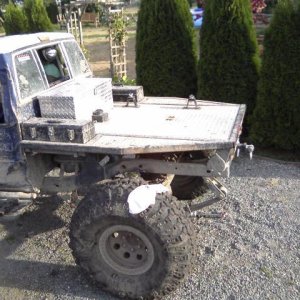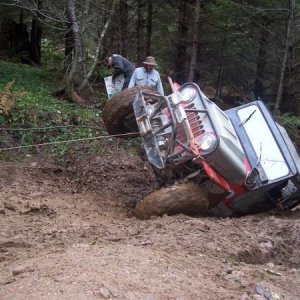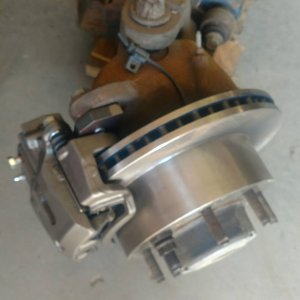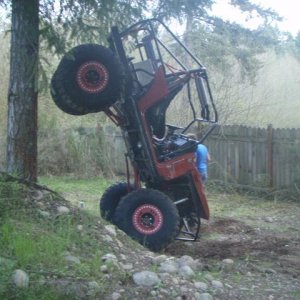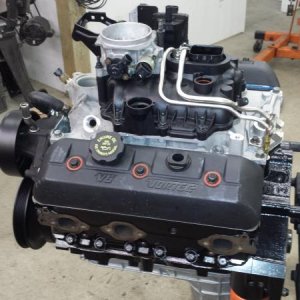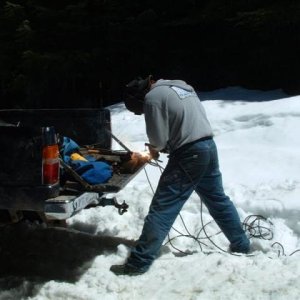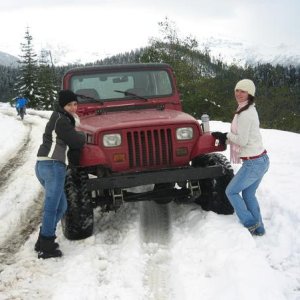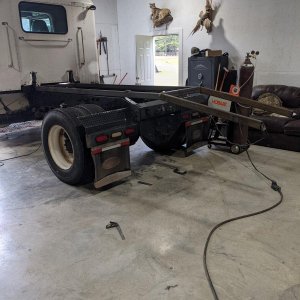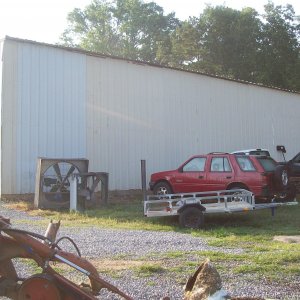A guy told me you can identify a small block chevy casting ie. 4 bolt or 2 bolt main by the casting stamp on the block. like the ending numbers being 10 or 01. is there any truth to this? I have access to a 350 but don't want to spend the time if it aint a 4 bolt main casting....how do I know without tearing it down?
-
Help Support Hardline Crawlers :
You are using an out of date browser. It may not display this or other websites correctly.
You should upgrade or use an alternative browser.
You should upgrade or use an alternative browser.
ID small chevy
- Thread starter "S"-box
- Start date
messix
Well-Known Member
leadfoot067
Well-Known Member
why does it have to be a 4 bolt? and the 3970010 block can be either 2 or 4 bolt..there is only a couple castings that are always 4 bolt...and again are you trying to make 1000hp or something? 2 bolt small blocks are good to 750ish hp if not more when the right parts are added to the build..and they can live happy spinning 8500.....dont waste your money because you think you need a 4 bolt...:kiss:
I was told by an old timer a long time ago that the chevy casting was a little different between certain years. the main cap bosses and the jackets in certain spots were a little different? not like I'm gonna be looking for 1000 hp, but not too far off. its a hopefull project down the road in a 2wd pickup, I've always wanted a killer little block "ripper". so it'll probably get mildly built with a blower and or nitro.:awesomework: and if it means the jacketing and associated internals are a little more "heavy-duty", than why not? especially when its $free.50, I just have to pull it!
the truck, a 2wd 1967 chev long box, was my dads and I have always had the same ideas as him as far as building a smooth but bad ass truck out of it. It may take a while but figured when my boys and I are ready, and if pops is still around we can all cruise it
leadfoot067
Well-Known Member
hey just trying to save a guy some coin:awesomework: i have a 67 gmc shorty im working on currently with a very rowdy small block in it..:redneck:
why does it have to be a 4 bolt? and the 3970010 block can be either 2 or 4 bolt..there is only a couple castings that are always 4 bolt...and again are you trying to make 1000hp or something? 2 bolt small blocks are good to 750ish hp if not more when the right parts are added to the build..and they can live happy spinning 8500.....dont waste your money because you think you need a 4 bolt...:kiss:
I don't know what the story is on THAT specific casting number is, but I have first hand experience with a 2-bolt casting that made 947hp at the wheels through an automatic and 958ft-lbs... so if you're going to do a BIG HP build with all the GOOD parts in it you're actually better off starting with a nice 2-bolt casting...
...that's IF you're putting big dollar parts into a big hp build ...and you know what you're doing.
yah right on, good taste homie:awesomework: I have the 2wd long 67 and a 4wd long 69, that I use for towing and bs! love the 67-72 style:beer:
I have a '68 2wd that's semi-quick (for a big truck with a sbc) sometimes (low 13's is where it's times usually are)

leadfoot067
Well-Known Member
heres how mine sits currently...


not that it matters at this point, but is there any truth to the block being thicker or different between castings. seems like the other thing I heard at one time is the water jacketing was thinner, making it more susseptable to freeze cracking? not that I would let my **** freeze ever but I know people that have lost plugs before, because of it.
Dear S-Box;not that it matters at this point, but is there any truth to the block being thicker or different between castings. seems like the other thing I heard at one time is the water jacketing was thinner, making it more susseptable to freeze cracking? not that I would let my **** freeze ever but I know people that have lost plugs before, because of it.
First, let's talk about block casting numbers for the SBC. The last digit in the block's casting number means nothing by itself. In hot rodding circles, we typically ID Chevy blocks and heads by using the last three digits of the casting number. For example, the original *large* camel hump heads are known as the 461 or 462 heads, because of the last three digits. The entire casting numbers are 3767462 and 3782461.
For SBC engine blocks, if the casting numbers is one of the following:
3914678 3951509 3956618 3970010 3970014 10051182
10054727 10066036 10125327
the block can be either a 2 bolt or a 4 bolt main block. The determining factor in whether the above blocks were drilled for 2 bolt main caps or 4 bolt main caps was wholly due to the vehicle the engine was to be installed in. If the original vehicle that the engine was installed in is unknown, then the oil pan needs to come off in order to determine whether the block is a 2 bolt or a 4 bolt.
Please note that out of all of the SBC block casting numbers, only these 9 block numbers can be either 2 or 4 bolt main blocks. The rest of the block casting numbers are specifically either 2 bolt or 4 bolt blocks.
In all honesty, if you want the strongest SBC main cap setup, then do not get a 4 bolt main cap block. Instead purchase a seasoned 2 bolt main block and order a Milodon 4 splayed bolt main cap kit from JEGS along with a 4 bolt front cap (must be purcahsed separately AFAIK). Please note that the outer bolts are *splayed* that being that they are drilled at an 18 degree angle. As such, you cannot use main studs and nuts, rather you must use bolts, because with the outer holes drilled at an 18 degree angle, it is impossible to slip the cap off of the the outer studs.
The cap kits comes with an included drill bushing and it a do-it-yourself affair. First, you install a new cap using the original 2 inner bolt holes and slip the drill bushing into one of the outer holes in the main cap. Then you drill a drill into the block, repeat the bushing, slip it into the other outer bolt hole and repeat. When both outer holes are drilled, then it's a simple matter of stepping them up to the correct size and tapping them.Any idiot can do it, which means that about 25% of the forum members here are capable of completing the task.
Next, freeze plugs. Freeze plugs aren't freeze plugs at all, my friend. They do not protect cast blocks and heads from damage in case the water freezes inside of them.
Their purpose is to have outlets for the casting sand after the component has been cast. That's their entire purpose. If the ports were not there, then the sand could not be removed and the resulting casting would be completely filled with casting sand, which would make the purpose of have water jackets a moot point.
You can purchase the extra thick brass plugs and braze them into the heads and block or you can get the steel plugs and weld them in. Either way, installing the plugs permanently is good insurance against blowing out a plug due to an overheated engine.
Mopar would tap the holes and install threaded plugs in their B and RB blocks. Chevy guys would get the same threaded plugs and tap their Chevy blocks and heads and install the Mopar threaded plugs that way.
All SBC castings are the same with one reservation. Chevy did produce one small block with siamese cylinder bores. That block would be different from all of the rest, but this would be the only exception to the rule. Other than this, all block castings are identical. In theory anyway.
In the foundry industry, there is something called *core shift*. This means that the casting's sand core may have shifted slightly while the molten iron was being poured into the casting. This means that a resulting casting may be slightly thicker either side to side or front to rear, depending on direction which the core shifted.
In short, core shift is a fact of life, however the castings are inspected for proper thickness before they leave the foundry, therefore core shift is basically insignificant on blocks and heads that have been machined and used on production engines.
The only real way to inspect a casting for core shifting is to have it ultra sonically tested for thickness. This of course is a major PITA and if someone were to go through the trouble to do this then the best bet would be to forego using a factory casting and instead purchase an aftermarket casting. This is will be cheaper and the resulting casting will be superior.
It sounds like you are getting hung up on numbers and urban legends, my friend. Unless you are building a forced induction (i.e. supercharged) engine, whether you use a 2 bolt main cap block or not becomes a moot point, as a 2 bolt block should be able to handle all of the demands of a normally aspirated engine.
Now, if you are going to be using a supercharger or nitrous, then you will need to look at a forged crank, connecting rods and pistons before the block even becomes a consideration. All of those components are far more likely to suffer from a catastrophic failure (think *hand grenade*) than a failure induced from a block that has 2 bolt main caps.
Since 2 bolt main capped SBC blocks are so darned cheap, your best bet would probably be to buy a 2 bolt main block then purchase a 4 bolt main cap kit. The kit that Milodon makes is stronger than the factory 4 bolt main caps and the resulting block will be cheaper.
Your friend;
LAMAR
junkyard jim
Well-Known Member
So who wants a 454 to build up?  Going to sell or part my '82 with 454/TH400 in a month or so. I'm looking for a cube van to put all my stuff in so I can get rid of the 5th wheel that I bought this Chev to haul.
Going to sell or part my '82 with 454/TH400 in a month or so. I'm looking for a cube van to put all my stuff in so I can get rid of the 5th wheel that I bought this Chev to haul.
well golly, thanks for your input!:awesomework: really sounds like you know your stuff. I had an idea about the casting process but it slipped my thoughts that the "soft", "freeze" plugs weren't actually for relief? seems like a lot of the people i've talked to kinda missed that too. makes perfect sense though!
I haven't really played with built chevys much, so first hand knowlege isn't really there...yet. and you know, the buddies of your dad and grampas, who were hot rodders are usually the guys you hear all kinds of "tips" from.
I will be doing a ton of investigation and research before the actual build, but this is all really helpful now to clear up any wild questions.
thanks again to all:hi:
I haven't really played with built chevys much, so first hand knowlege isn't really there...yet. and you know, the buddies of your dad and grampas, who were hot rodders are usually the guys you hear all kinds of "tips" from.
I will be doing a ton of investigation and research before the actual build, but this is all really helpful now to clear up any wild questions.
thanks again to all:hi:
junkyard jim
Well-Known Member
The freeze plus are actually where they washed the sand out of the casting when the motors were made.
So who wants a 454 to build up?Going to sell or part my '82 with 454/TH400 in a month or so. I'm looking for a cube van to put all my stuff in so I can get rid of the 5th wheel that I bought this Chev to haul.
thought about this as well. right now its so far down the line that I wouldn't be interrested in buying anything! unless of course the price is right?:eeek:
is your rig 2 or 4wd? th400 with t-case may sound like a possibility.
Similar threads
- Replies
- 76
- Views
- 27K


